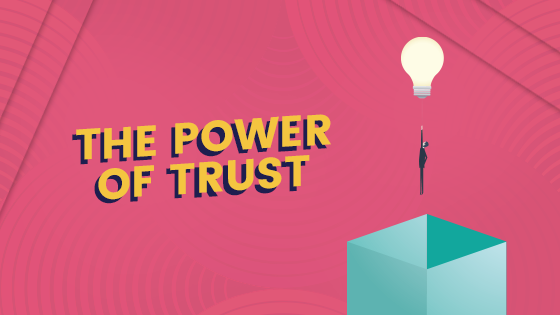






As humans we’ve a natural inclination to distrust people. We’re born with an intuitive system alerting us when people may be deceiving us or giving us reasons to doubt them.
Given the current landscape, now seemed the right time to consider the importance of trust in marketing and how it’s impacting brands.
To affinity and beyond
Trust is essential during the sales process:
Edelman’s Trust Barometer Report revealed that 81% of people ranked ‘Brand Trust’ in their top 5 buying considerations.
But the importance of trust extends beyond convincing customers to buy. Once a brand is trusted, consumers are:
- More likely to seek out these brands first for additional purchases & more likely to complete a purchase
- Less likely to switch to an alternative (retention is cheaper than acquisition)
- Willing to actively defend the brand in the face of negative comments
- Prepared to pay more for the products of brands they trust
64% of people who trust a brand a great deal are willing to pay a premium for their products.
Ipsos, Unlocking the Value of Reputation Report, 2018.
As you build trust, your marketing communications will be rewarded. Research shows that as the level of trust in your brand increases, as does the perception of the truthfulness of your advertising (but don’t take advantage, marketers!).
However, the relationship isn’t as simple for premium pricing; it’s more of a ‘tipping point’ than a gradual increase. Only once consumers truly trust your brand will they be willing to pay more.
Companies as the new communities?
Consumers are calling for more from brands. Expectations have moved beyond doing what’s right by them in the confines of your business (i.e. product and customer experience), but into wider society.
Brands must respond by taking a stand for what they believe in and supporting people that do the same (think Nike & Colin Kaepernick). Even if the decision appears financially detrimental in the short-term.
It’s not just an issue for big business either, market share data shows that trusted brands are occupying more of the market each year compared to neutral or untrusted brands.
And it can’t just be a marketing tactic, you’ve gotta talk the talk and walk the walk. High-street retailer Patagonia is a brand that talks a lot about their stand against injustices, even having an ‘activism’ section on their corporate site.
We’re Part of a Movement for Change.
Whether it’s demonstrating your commitment to injustice by opting out of using a particular tech platform, sourcing materials ethically, or looking after employees. It’s easier to trust a brand that clearly embodies their values.
Of course, campaigns can capture consumer’s attention, but if the rest of your organisation doesn’t follow suit, the seed of doubt could be planted.
Consumers are tired of untrustworthy marketing messages, even taking active steps to avoid advertising, either by installing software (pop-up blockers/anonymous browsing/cookie blocking software) or choosing paid-for services to mute ads and marketing communications.
They expect your products will live up to your promises. They expect a high level of customer service with an exceptional purchasing experience. They’re seeking a brand that mirrors their beliefs and values, one they can align with and be proud to stand beside.
Ask yourself:
- What’s at the heart of your brand?
- What societal issue do you care about?
- What societal issue does your community care about?
- What issue can you solve to make the lives of your customers better?
Decide on an issue.
Align yourself.
Live it.
It should make up part of your business, not just part of your marketing. Once it’s central to your decision making as an organisation, only then allow it to filter into your marketing communications.
Summary
Business is no longer just selling a product and making a profit. Brands that gain trust are outperforming their rivals, the market share of ‘trustworthy brands’ is growing each year demonstrating that purpose-led marketing shows no signs of tailing off. What was once a novelty, is fast becoming the norm.
And if you’re still not sold on the benefits of building a trustworthy brand, organisations that gain trust and stand up for what they believe in are reaping the reward by way of their bottom line.
As people lose faith in politics and governments, they’re turning to brands that have been with them for the long haul. Not just for reassurance, but for action against social injustices and to help them fight for what matters to them.
It’s essential that brands regardless of size, shape and sector keep delivering on brand promises, and responding to consumer demands. And there’s never been a better time to be the reassuring arm around the shoulder of your consumers (metaphorical, of course).
Check out our next blog in the series on trust, where we're looking at building trust with content marketing and why not download our guide to Inbound Marketing Strategy.







